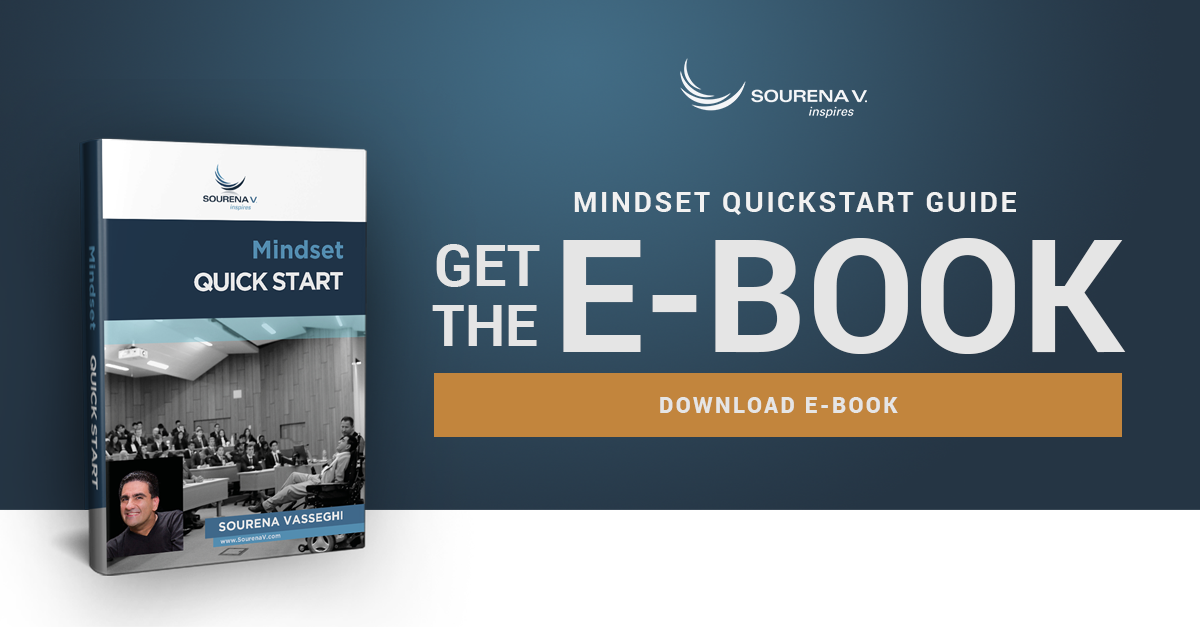Busting 10 Myths of Success
Everyone has a notion of what it takes to be successful. I was born with severe cerebral palsy which left me in a wheelchair. But I too wanted to be successful.
The key principles of success were always important to me because I had to find new ways of achieving it. This is what I have been focusing on since the early 2000s. I don’t want to sound like a contrarian but some common wisdom about success simply doesn’t make sense and may even be stunting your growth if you believe it. I have discussed many of these ideas in my two decades of studying and research.
1. Self-made person
The self-made person does not exist. We are all influenced by those around us and by education. This could be reading books, attending conferences, or watching people succeed (or fail). It could even be asking for advice. We have all done that. But nobody came out of the womb as a full-fledged football player or guitarist.
Every entrepreneur has somebody who gave them their first account, bought their first product, took a chance on them, agreed to a mentorship or hear their first sales pitch. And how many entrepreneurs had supportive families who sacrificed vacations and a steady paycheck to support their dream? If you read the acknowledgements in books, most authors have a long list of people who helped out. In fact, recognizing the contribution of others keeps you humble and reveals who you can rely on. I think a belief in the self-made person can be a major blind spot stopping you from building a useful network. Even a coach, consultant or therapist can help take your life to the next level.
2. Overcoming obstacles
When I started speaking, people commented about how great it is that I overcame my disability. I thought to myself, “I didn’t overcome anything. I just dealt with my disabilities.” No matter how successful I am, my disability will not go away. Few challenges or obstacles ever truly disappear, they just evolve over time.
Obstacles are a part of life and that’s ok. An entrepreneur will always have challenges in recruiting staff, staying relevant in the market, maintaining cash flow, keeping up with trends and everything else. Life is always changing and with every change comes new opportunities. Not trying to beat down every challenge with a stick is a valuable tool for any entrepreneur.
3. Passion
This is an enormously overused concept in both success and personal development. Passion is an uncontrollable emotion. Do you want employees who cannot control their emotions? Or who walk out of meetings when their feelings are hurt or if it's happy hour?
Emotional discipline is key to success. No matter how much you love your business there will be boring activities from time to time. Restauranteurs are not "passionate" about calling the plumber. Gym owners don’t want to call out their trainers for body odor. An entrepreneur’s passionate vision might not reflect market realities. Market research determines the next steps, not an entrepreneur's passion. Those who need to be passionate all the time might avoid the hard knocks of life, and often those are where true growth lies.
4. Always try 100%
We hear this all the time. In fact, many people like to show their commitment by saying they will try “110%” or “1000%.” This is nothing but false bravado.
In reality, success is an ebb and flow between effort and rest. Weightlifters perform one set of reps, then they rest. And like in any relationship, if one party does all the work, that is called stalking last time I checked. A salesperson should not call a prospect five times a day or in the five minutes after a presentation.
Every entrepreneur should spend time away from the business to recharge, generate new ideas and strategize. I like reading, taking rides in my wheelchair, going out to dinner, spending time with my family, listening to audiobooks and taking trips. Even the best basketball player in a team does not put in maximum effort on every play. They don’t even play the whole game.
Instead of working at 100% all the time, try instead to be present and put in a consistently high level of effort. Grinding it out will leave you with no energy for reflection and growth.
5. Anything is possible/Being limitless
Guess what? Life has limits and not everything is possible. Human beings cannot travel from NYC to LA in one hour, run 100 miles per hour or open a company in a remote place without any marketing.
Navigating around obstacles is a key to success. If I ignore my limitations and think "anything is possible" the realities of my disability would ultimately frustrate me.
Understanding the lessons of your limitations will also help others achieve amazing success. There are limits that you have physically, emotionally, knowledge, or even mindset. We all have a gap separating where we are and where we want to be. Those gaps are limitations. If you believe "life has no limits," you will waste finite energy focusing on barren activities.
6. Will power
My friend Chris Stevenson once told me will power is overrated. Chris works in the fitness industry and knows changing a bad diet doesn't depend on will power. It means not having chips or ice cream in the house. I believe habits, behaviors and processes are the engine that fuels your success. One of my favorite books, Atomic Habits by James Clear, shows how behavior is a result of your environment, not will power. The individual must prime their environment to promote good behavior and make it harder to engage in bad behavior. Turns out Chris was correct.
7. Independent thought
Most of our behaviors are influenced by the people we interact with the most. Your goals likely have already been accomplished by someone else. But to get ahead, that means all you have to do is learn and study from those who came before. Tapping into their mindset is crucial for success. Relying on your own instincts is a huge limitation because you won't be tapping into the huge reservoir of experience called history.
8. External motivation
Nobody will motivate you quite like you can motivate yourself. You probably already know the feeling of waking up one day buzzing with motivation. Most people wish they could have that every day. But motivation comes and goes like the tide.
So, always be seeking what motivates and inspires you. (Note: you can use external motivation as well.) Motivation comes from getting excited about finding new ways to achieve your goals. Two people can experience something and have a different reaction. For example, if two people go to a conference one will come home with ideas, notes and positive intentions. The other will come home thinking it’s a waste of time and whatever you do, don't drink the Kool-Aid.
Drawing motivation from external sources is a disorganized way of achieving goals. You must always be advancing the search for what motivates and inspires you. Asking why success is so important to you? What do you want your life to look like? What do you want to provide for your kids? What is your ideal day? What information should you consume to take your life to the next level? Who has the life that you want and how can you get there too? Once you get the answers, implement them in your life.
9. Never give up
Sometimes, taking your business to a new level means ending certain narratives and adopting new ones. Successful businesses know how to give up on employees who are a bad fit, drop unpopular product lines and even completely change a corporate mindset. As a business expands, an entrepreneur might have to delegate tasks so they can focus on bigger things.
I often write about rewriting your narrative. What works at one time may not work in another. If you’re not willing to rewrite your narrative you might be limiting your growth. Selling copy machines, VCRs, fax machines, beepers is just not viable anymore.
Think about achieving success like working your way along a set of monkey bars. The only way to make progress is to let go of one bar to grab the next. Pivoting is a great term in early-stage business and it is necessary for success.
An example of a company that didn’t pivot is Blockbuster Video. It had the brand recognition to offer digital video services like Netflix. But it didn't pivot with the changing technology. It's a great example of how persisting with doomed activities is a waste of valuable resources. Remember, don’t stalk your life.
10. Secrets of success
Adopting the mindset that there are secrets to success can be highly detrimental. Why? It implies you cannot access the information you need to succeed (you can). It also implies that success is not simple and straightforward (it can be).
Larry Winget once said, “the secret to sales is asking someone to buy. The secret to leadership is give people an example to follow.” When people talk about secrets, they often mean tactics or strategy. Those come from reading books, watching videos, attending conferences, joining a mastermind or any kind of education.
Secrets are common. Most companies have proprietary assets, like a formula, sales process or a recipe. Even the secret sauce on a Big Mac is just a glorified version of Thousand Island. Those who believe there are secrets to success are much less inclined to seek out ways to get to the next level. It’s important that everyone develop a decent strategy for success.
Vague statements make us feel good and look great on a tee-shirt. Yet they can stunt your progress. My job is to help you expand your mindset so you can follow a smoother journey.
Let's Stay in Touch!
Join my newsletter. I've love to update you on news about me and ways to stay motivated.
By submitting this form, you agree to receive ongoing updates from Sourena Vasseghi




